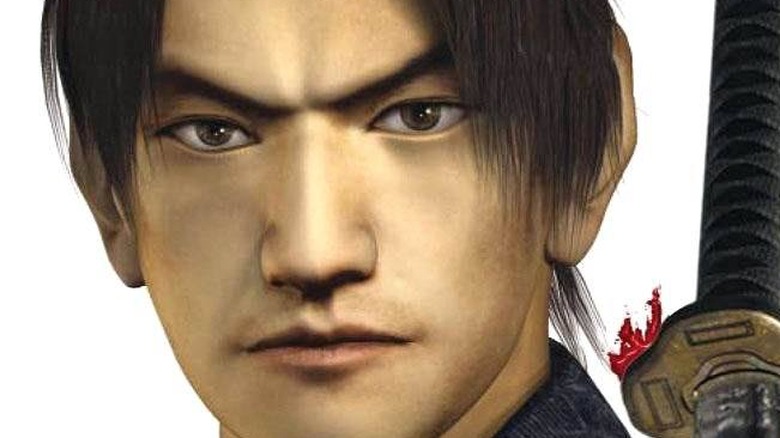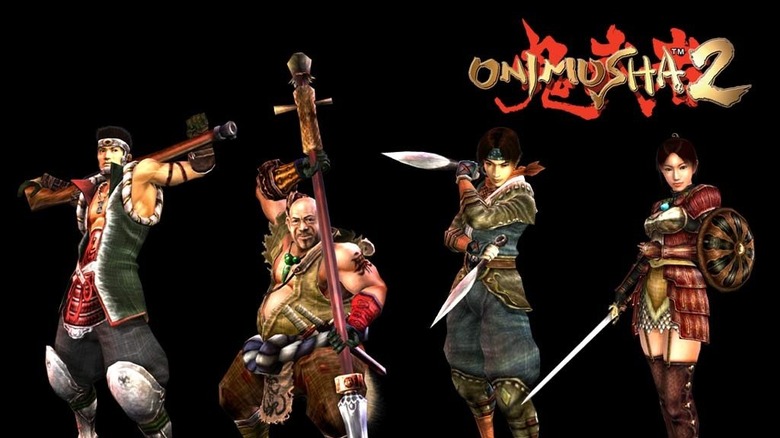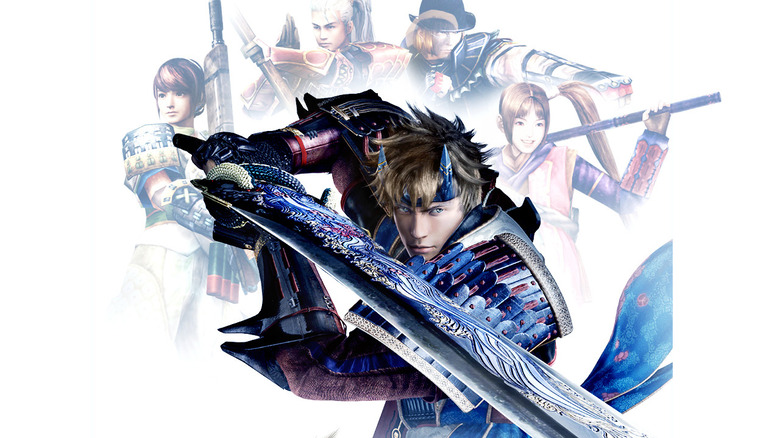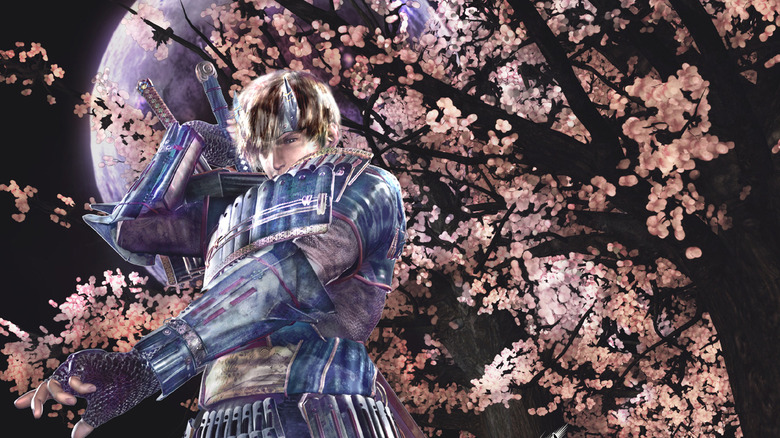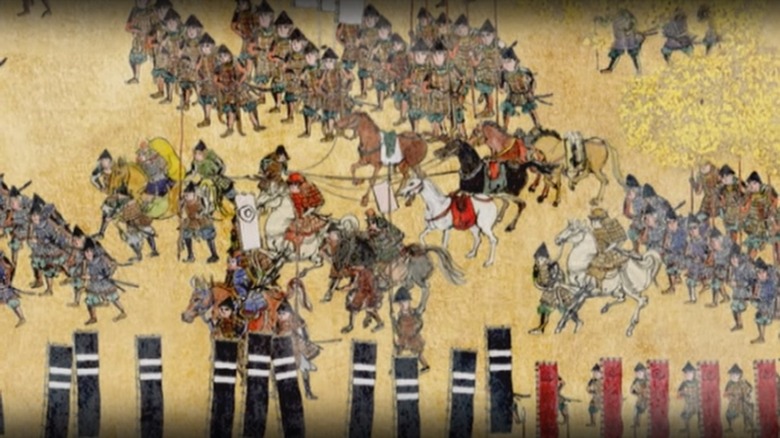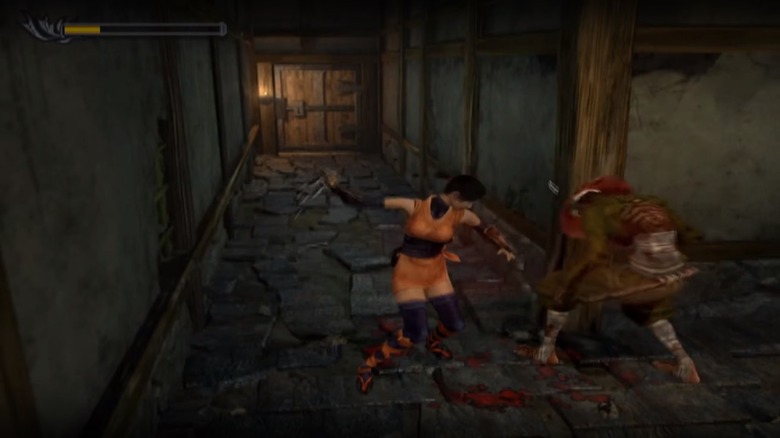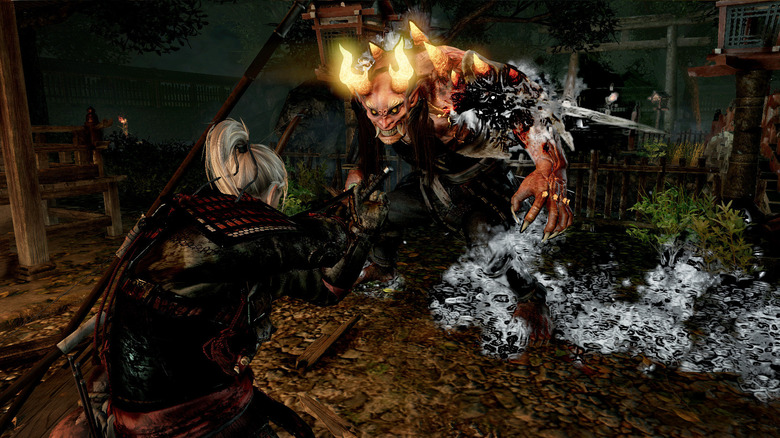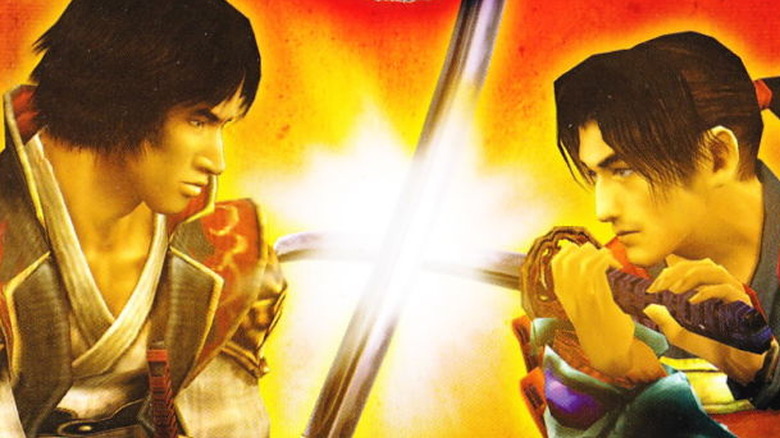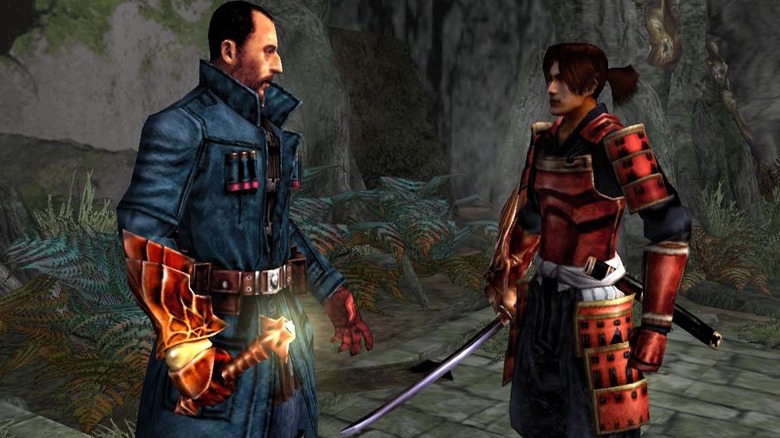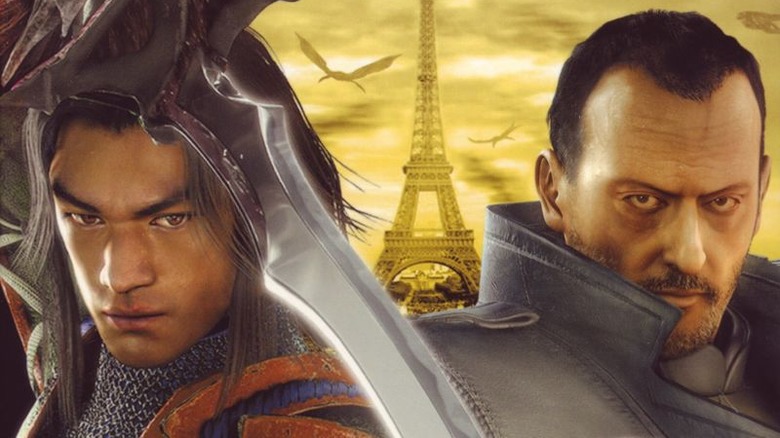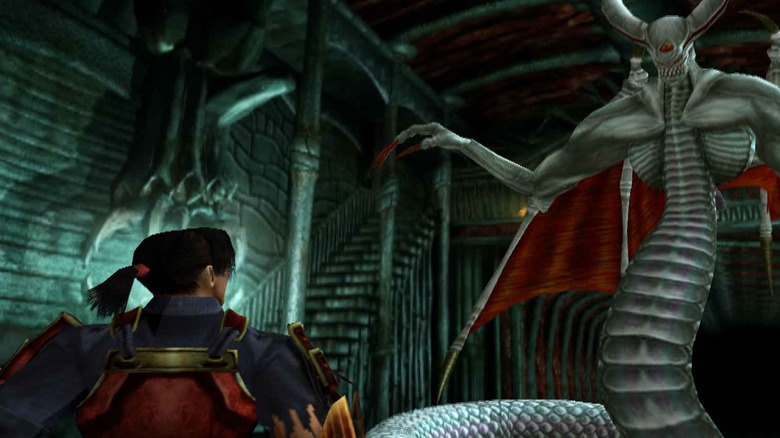Whatever Happened To Onimusha?
We may receive a commission on purchases made from links.
Not every video game series gets to live to bridge the console generations. For every perennial franchise like Mario or Zelda that's always vital and relevant, there's something like Onimusha: a game series that has a good, solid run across one or two console eras and then just ... disappears.
A third-person close-quarters combat and puzzle-solving game based on Japanese history and myth, Onimusha is a series best remembered for its sense of style, old-school gameplay, and imaginative story, if not necessarily any semblance of historical accuracy.
But while the series was at one point among the most popular franchises on the PlayStation 2 that spawned it, Onimusha today is all but forgotten. What happened to these once-vital games, that took the survival horror tropes of Resident Evil and set them against the backdrop of Japanese civil war? Why did the series disappear, and is it ever coming back? Ready your blade, reader; it's time to face this demon down.
Origins
Developed by Capcom, the Onimusha series made a big splash when it premiered on the then-new PlayStation 2 in 2001. The first installment in the series, Onimusha: Warlords, was the first game ever released for the Sony console to sell over a million copies, earning itself a Guinness World Record for the effort.
Arguably, that initial success single-handedly lifted what could have easily been another Resident Evil clone into its own robust, unique franchise, with a sequel releasing — and performing almost as strongly — just over one year later.
Developed almost in conjunction with one another, the first two games in the Onimusha series didn't take much advantage of the PS2's hardware potential. Onimusha: Warlords was earlier developed for release on the first PlayStation, after initially being conceived for the Nintendo 64. Both games certainly feel like relics of the past today, and we're not just talking about all the sweet Sengoku trappings.
Together, the first two games in the series established themselves as taking place during a great period of provincial warfare, as territorial warlords fought each other incessantly for dominance of the Japanese archipelago. Naturally, the games sprinkled in a fair share of horrific predator demons who feast on humans for the pleasure of their chaotic god-king. History is far from boring, but it does admittedly get cooler to think about when you add in insane things like that.
Shin Onimusha
The series continued to evolve from its Resident Evil-style roots into something all its own with the inventive third and fourth games of the series, which introduced even more fantastical elements.
The first, 2004's Onimusha 3: Demon Siege, cast original hero Samanosuke against a Frenchman from the future named Jacques Blanc, whose character was distractingly modeled after the actor Jean Reno. This entry was the first installment in the series to allow for three-dimensional movement via an analog stick, which more than anything else should give you an idea of just how antiquated those first two games have become.
Starting with Onimusha 3, the games were designed with the PlayStation 2's specifications in mind, marking this as the point where the series got a lot prettier. Its use of 3D backgrounds and full analog control helped to inspire Resident Evil 4 director Shinji Mikami to take what it presented and make it better with his own game. According to a Shacknews interview with the developer in 2011, "Probably if Onimusha 3 had been better, I wouldn't have thought of [Resident Evil] 4."
The fourth (and up to this point, final) main installment in the Onimusha series arrived in 2006 with Onimusha: Dawn of Dreams. Finally equipped with a fully 3D camera, it was the first game in the series to feel like something modern, with a higher emphasis on both combat and exploration, plus a (slightly) more open world and a lower emphasis on puzzle-solving.
Flagging sales
Though the third and fourth games in the series successfully modernized Onimusha's gameplay, enthusiasm from players was muted. While the first game in the series had the benefit of being among the first big titles for the PlayStation 2, Dawn of Dreams had the misfortune of showing up on the console's last lap, with the PlayStation 3, Wii, and Xbox 360 all arriving within months of its 2006 release.
The fourth game may have been forward-thinking for Onimusha, but when it came to the broader gaming landscape, the concluding installment of the saga didn't generate a lot of buzz. As far as sales were concerned, 2006 saw Capcom get much more mileage out of its resurgent Resident Evil and Monster Hunter franchises.
Christian Svensson, an executive with the company, got frank about the series' flagging popularity in an interview with IGN in 2010. "While Onimusha 1 and Onimusha 2 are among our more successful titles, Onimusha 3 and Onimusha: Dawn of Dreams, not so much."
According to Svensson, the series post-Onimusha 2 showed consistently declining interest from the gaming audience, with enthusiasm for the games sinking so low by the release of Dawn of Dreams that follow-up prospects withered away. "Let's just say every outing subsequently has been about 60% of the prior," Svensson said. "The brand doesn't right now have quite the resilience that you might think."
Know your history
Though enthusiasm for Onimusha faded among the gaming populace by the end of the PS2's life cycle, Capcom certainly didn't do a lot to stoke the flame back to life on later consoles.
Since the PS2 days, Capcom hasn't shown much love for the series through re-releases and remasters. At this point, you can play Resident Evil 4 on eight consoles and two different kinds of smartphones, making a huge swath of gamers at least passingly familiar with the game. The same largely goes for the Mega Man games, or the ten thousand different versions of Street Fighter II.
Onimusha has had no such luxury, as aside from a 2008 no-frills box set for the aging PS2, Capcom has neglected to keep the series in the gaming public's consciousness. Rather than being lovingly preserved and updated with snazzier graphics and better controls — the latter being something the early games truly cry for — all four of the Onimusha games have been left behind with the likes of Dino Crisis, mostly fodder for nostalgic Let's Plays.
To the casual gamer, these older games are borderline unplayable, and since Capcom hasn't met new generations of players halfway with new remasters, it's left Onimusha precariously close to being relinquished to history for good.
Moves like a tank
One thing keeping Onimusha from having sustained relevance today has to do with the simple fact that they truly don't make games like this anymore. If you've got any questions about that, you need look no further than the Resident Evil series, which is now multiple evolutions past its original incarnation as a hard-to-wrangle tank-control game.
While gamers of the era typically managed to get the gist of "pivot, turn, move" control styles that made survival horror games such a horror to survive, it was never a particularly intuitive way of moving about a digital world. Even the innovations of the action-y Resident Evil 4 (and the similarly more action-y third and fourth Onimusha games) come off as relatively clunky today. Once revolutionary movement and camera control schemes are now seen as foundations, and difficult to swallow in their unvarnished form.
Onimusha's problem is that it never really evolved past these now-outdated modes of movement. Even as the series nudged itself toward modernity by ditching D-pad controls for its third game and fixed camera angles for its fourth, there was never a revolutionary "aha!" moment that announced the series as being something reborn. Now, it's been so long since a new game was released in the series that any new installment would necessarily feel completely different from those original four — and if you have to change how the entire game plays to bring it to the modern day, would Onimusha fans of old even care?
Old souls
Instead of Onimusha, a new breed of action-adventure game has risen up to take its place. Swords, sorcery, and cosmic horror in lush period settings? That may have been Onimusha in the early 2000s, but today, that sounds a lot like a Souls-style game to us.
It really can't be overstated how much FromSoftware's deliciously sadistic Souls games have stolen the mojo that Onimusha once held. From the dark fantasy vibe, to the swordplay, to the very gameplay act of harvesting souls from fallen enemies for the sake of health and power, these influential games have taken Onimusha's baton and flown off to another world with it. You just cannot make an Onimusha game today without inviting comparisons to Demon's Souls, Dark Souls, or Bloodborne — and that's a risky fight to pick, because those games are great.
Take Nioh, for example. This is a game so evocative of the old-school Onimusha style mixed with modern-day, ultra-hard, refined gameplay that if you were to tell an uninformed person that it was Onimusha 5, they might just believe you for a good few hours. These warrior-with-a-sword-fights-demons-from-beyond-the-deep sort of games have come so far since Onimusha, and that's a boon for gamers everywhere. But if this clunky old property wants to come back into a modern context, it would need to demonstrate some serious savvy with its overall design to prove itself of deserving of a spot back on the bleeding edge.
Alternate paths
Of course, Onimusha didn't stick to the same old "fight Genma, solve puzzles, run around, beat boss" formula for every game in the series. While the core four games held to more-or-less the same mission statement, the brief popularity of the franchise opened the door to a handful of off-the-wall spinoffs.
Following the first two mainline games, a spinoff tactical RPG called Onimusha Tactics was released on the Game Boy Advance, offering up a different, portable approach to Sengoku-era demon-killin'. As IGN points out, the game came out just two months after the incredibly good Final Fantasy Tactics Advance, suffering by comparison and failing to start a new franchise despite being, across-the-board, pretty much fine.
Also released in 2003 was the similarly-decent Onimusha: Blade Warriors, a multiplayer, side-scrolling Super Smash Bros.-style game that made for a simple, rental-tier distraction. It didn't set the world on fire, but the beat-'em-up throwback also had its charms — like the ability to play as Mega Man. That's much more than can be said for Onimusha: Soul, an ironically soulless browser game that combines basebuilding, card collecting, and the least engaging gameplay this side of Tic-Tac-Toe.
Unlike the mainline Onimusha games, these side stories are forgettable, having little to offer series completionists except ... well, a sense of completion — as well as the occasional unexpected cameo appearance from the likes of Street Fighter's Cammy.
Trademarks filed, meaning what?
The central problem with bringing Onimusha back is twofold: a lack of fan interest in the series' latter games, and the fact that the entire series' heyday is now multiple console generations' worth of obsolete. A whole lot of things would have to go right to make a modern Onimusha work, and it wouldn't take too many flaws to fully bury a franchise that — for now at least — is trapped in stasis. They're issues that take what should be a rich history for the series and make it feel more like too much heavy baggage.
But fans were encouraged in spring 2018 when Capcom filed trademarks for "Onimusha" all around the world, leading many to wonder if something bigger may be on the horizon. That may still be possible, but at the time of this writing? Crickets.
It's also not the first time this has happened. Capcom also filed a similar trademark in Japan in 2015, after which no developments occurred. Not a remake, not a new game: nothing. The simplest explanation is that Capcom is maintaining stewardship of the name of one of its most successful franchises. Trademark registry is not exactly an E3 announcement. It's just business.
Film talk
It's hard to imagine it now, but this series was once popular enough that it was actively being adapted into a movie — like, a real, live-action movie, not a stitched-together collection of in-game cutscenes.
Following the success of the big-screen adaptation of Capcom's Resident Evil — a formidable enough film franchise that's still chugging along to this day — efforts were made to get an Onimusha movie off the ground, starting with a version with a $50 million reported budget in 2003. That movie, which a producer predicted would spark off a franchise of its own, failed to ever come to fruition, though efforts continued to make things happen up through 2006.
Maybe the fading popularity of the games had something to do with the decision to axe the movie project. More likely, someone finally looked at the idea with sober eyes and realized that an honest-to-god feature film based on this nonsense was probably doomed to be terrible, no matter what you what you tried to do with it.
The middle age of Capcom
On a long enough timeline, there probably will be another Onimusha. Though it rings more quietly in gamers' ears with every passing year, Onimusha remains a recognizable name to many a gamer. Whether or not the Capcom of today recognizes that value, though, is another matter entirely. Over recent years, what used to be one of gaming's most reliable developers has become something of a ghost of its former self, out of touch with its fan base.
The fading fortunes of Capcom's reputation have been a sort of "death by 1,000 cuts" situation, with indignity after irksome decision grating on gamers' nerves. There's the poor handling of the Mega Man legacy, with terrible mobile ports and a greedy release strategy for a Nintendo Switch series bundle. There's the feature-stripped, aesthetically-ugly, DLC-addled Marvel vs. Capcom Infinite, or the glitchy and botched rollout for Street Fighter 5. Throw a dart at any of Capcom's major franchises, and some series loyal will pop out of the woodwork to count the ways of how the company is trying their patience.
In short, the overwhelming perception is that Capcom just doesn't care about gamers anymore — only consumers, and their hard-earned cash. The Capcom of today is not a company one would easily trust to revive or even remaster Onimusha. Until the company puts players first again, maybe this series should stay waiting in the past.

